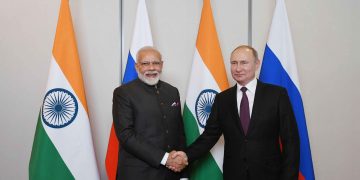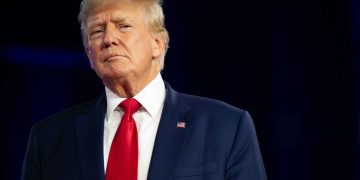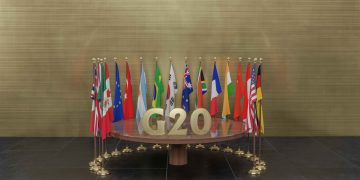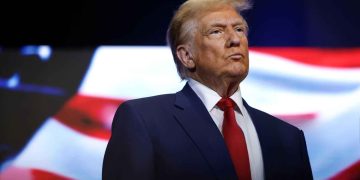Russian Foreign Minister Sergey Lavrov emphasized that the upcoming 2024 BRICS Summit, set to take place in Kazan, Russia, will represent a significant turning point for BRICS cooperation, driving the bloc’s interaction to new heights. Speaking on Thursday, Lavrov discussed the expectations for Russia’s chairmanship and how the expanded BRICS group will continue to enhance its global role.
Lavrov expressed confidence that the summit will solidify the progress achieved throughout 2024, stating: “I believe the BRICS Summit in Kazan this October will mark the achievement of new heights in the interaction between BRICS countries.” This summit will serve as a milestone event for BRICS, which now includes four new members—Egypt, Ethiopia, Iran, and the United Arab Emirates—further strengthening the organization’s influence in global affairs.
Discussing Russia’s 2024 chairmanship of BRICS, Lavrov said the beginning of the year was marked by unique challenges, particularly given the group’s first-ever expansion. “We entered 2024 without prior historical experience of expanding unification on this scale. It was unclear how the adjustment process would unfold or what outcomes we would achieve,” he noted. However, Russia has successfully navigated these complexities, gaining significant momentum in implementing the expanded BRICS agenda. “Today, with a third of our chairmanship behind us, we are moving at an increasing pace towards success,” Lavrov added.
On January 1, 2024, Russia officially assumed the chairmanship of BRICS, an intergovernmental organization that now includes nine member states: Brazil, Russia, India, China, South Africa, Egypt, Ethiopia, Iran, and the UAE. Lavrov underscored that the inclusion of these new members underscores BRICS’ growing global authority. “It’s worth noting that there is no historical precedent of any organization doubling its membership in such a short time,” he remarked.
Lavrov also highlighted the enthusiasm displayed by the new BRICS members. “All of the newcomers are showing great eagerness and are ready to work in a substantive and professional manner on the comprehensive agenda that the Russian chairmanship has developed in consultation with all participants,” he said. This enthusiasm reflects the growing recognition of BRICS as a powerful platform for international cooperation in a multipolar world.
However, Lavrov acknowledged that the scope and volume of BRICS activities have been a surprise to some of the new members. “For some of the recruits, the sheer scale of BRICS operations, with its numerous events and multi-level mechanisms of interaction, was unexpected,” he explained. “It’s not just about the number of meetings but the complexity of how new ideas, traditions, and initiatives are integrated into the fabric of BRICS work.”
The Russian foreign minister further elaborated on the significance of BRICS as a platform for developing innovative solutions to pressing global challenges, including economic cooperation, technology, energy security, and global governance. The 2024 BRICS Summit in Kazan, scheduled for October, will focus on advancing initiatives in these areas and is expected to yield substantial results that will benefit all member nations.
Looking ahead, Lavrov confirmed that two key documents will be adopted at the summit. The first will be a set of recommendations for BRICS leaders, outlining strategies for deepening cooperation and addressing global issues. The second will be an “Address of the BRICS People,” a document reflecting the collective vision of the people from BRICS nations regarding the future of the organization and its role in shaping a more just and equitable international system.
The Kazan summit is expected to highlight the strength and unity of BRICS, despite the geopolitical challenges faced by some of its members. Lavrov reiterated that BRICS remains committed to fostering cooperation based on mutual respect, sovereignty, and shared interests. With BRICS now representing a significant portion of the global population and economy, the group is well-positioned to play a leading role in promoting sustainable development and reforming global governance structures.
As Russia continues to lead BRICS in 2024, the Kazan summit will undoubtedly serve as a pivotal event, setting the stage for even deeper collaboration and further consolidating BRICS as a key player on the world stage.





















